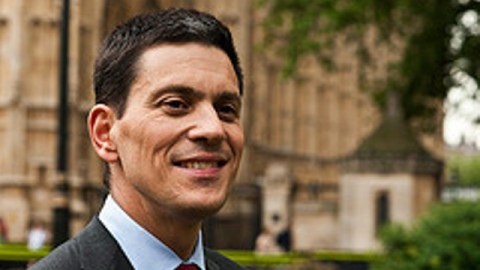The Politics Of Money

Since this is Big Think’s ‘Month of Thinking Dangerously’, here are my three pennies worth. In politics it has almost been impossible to think dangerously on either side of the Atlantic for nearly two decades, unless of course you are Sarah Palin or signed up to one her Tea Parties.
My shopping list would include a whole series of unmentionables, and would include, ending the war in Afghanistan, scrapping the new generation of nuclear missiles, re-distributing wealth through the tax and benefits system, and creating a new Peoples’ Savings Bank. Since these modest prescriptions would probably enjoy popular support, I will add another; reforming party political finance.
It is indisputably the case that big money buys political influence. It is also the case that much of this money is wasted by putative politicians, and the pay back costs to the wealthy individuals or big corporations are often unacceptable, even when they are opaque. Big money has ruled the roost in the United States for a long time, and any efforts to tackle its pernicious influence are frequently re-buffed.
Here in Britain, we currently have a contest between five individuals, including two brothers, who wish to be elected as the next leader of the Labour Party, de facto becoming Leader of the Opposition. Since the Labour Party, barely three months after losing a General Election so badly that many predicted it could go the way of the Dodo, now commands 38% in the latest polls to the Coalition Government’s 48%, being Leader of the Opposition is not to be sniffed at.
The left wing candidate, Diane Abbott has managed to raise £1,700 for her campaign, as against the current favourite David Miliband, who has received donations well in excess of £200,000. Most of these donations appear to have come from the same wealthy individuals who backed Tony Blair for leader back in the early 1990s. Of course Miliband’s war chest is fairly small beer in comparison with that raised by US Presidential candidates, but it is more than enough to deliver him a well oiled campaign machine.
When I was a member of Labour’s ruling National Executive Committee, I argued for a cap on donations, and also for the source of them to be made public. Large donations now must be declared, but I see no evidence of a cap being imposed on spending. It all leaves David Miliband having an unfair advantage.
Isn’t it about time that party political campaigns were capped and regulated by law if need be? If they were, those same politicians would have to raise money the old fashioned way, by asking for small donations from ordinary members or registered supporters. That might be enough to persuade them that they need more of those members in the first place.





